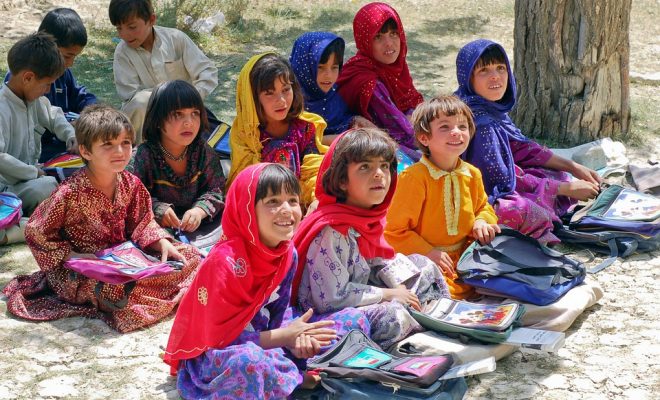31 Fascinating Olympics Facts for Kids

In Exactly two years, we get swept up in the enchantment of the Olympic Games. We stand on the sides and observe as athletes demonstrate superhuman bodily and cognitive power and dedication. We discover their names and tales, but to what extent do we really understand this amazing occasion? Do you want to know more? For children, here are some amazing and exciting Olympic facts.
31 Interesting Olympic Facts for Children
In 776 B.C., the very first Olympic Games were held.
The Olympic Games comprised boxing, chariot race, discus, long jump, javelin, and wrestling and could run up to six months as elements of an Ancient Greek celebration honoring and celebrating Zeus. To discover more, watch this clip.
Competitors participated in the original Olympic Games in their underwear.
The term gymnasium comes from the Greek word “gymnos,” which implies “naked.”
In 393 A.D., the Ancient Olympic Games came to a close.
The Olympics were declared a pagan holiday by Emperor Theodosius I, a Roman emperor, due to the religious aspects of the rituals. Discover more about why Romans discontinued the Games in this video.
Athens, Greece hosted the first modern Olympics.
Baron Pierre de Coubertin resurrected the games in 1896, dubbing the revived tournament the “modern Olympics”—and it’s still going well. Find out more about what occurred!
Twenty-three nations have held the modern Olympics.
Australia, Austria, Belgium, Brazil, Canada, China, Finland, France, Germany, Greece, Italy, Japan, Mexico, Norway, Russia, Spain, Sweden, Switzerland, South Korea, United Kingdom, United States, and Yugoslavia are among the Olympic host nations.
The Olympics was once a place where artists could compete.
Practitioners such as builders, painters, composers, sculptors, and writers competed for awards from 1921 until 1948. Find out everything about the time when the painting was an Olympic sport.
The Olympics used to be held solely in the summer.
It wasn’t until 1924 that the first winter games were held.
In the Southern Hemisphere, the Winter Games have never been held.
There is an excessive amount of heat there. Ice and snow are required for winter activities!
The United States is the only nation to have hosted the Summer Olympics 4 times.
The Summer Olympics were held in St. Louis in 1904, Los Angeles in 1932 and 1984, and Atlanta in 1996. (1996). In 2028, Los Angeles will organize the Olympics for the 3rd season.
Only London has hosted the Summer Olympics three times.
The Summer Olympics were held in London in 1908, 1948, and 2012.
Three times in the modern era, the Olympics have been abandoned.
World War I (Berlin 1916) and World War II forced the cancellation of the Games (Tokyo 1940 and London 1944).
The five continents are represented by the rings on the Olympic flag.
The five linked rings symbolize the continents’ solidarity and unity: Africa, America (North and South), Asia, Europe, and Oceania. Discover the true meaning of the Olympic rings.
Every national flag is represented by the Olympic ring colors.
When Baron Pierre de Coubertin formed the modern Olympics, he chose the colors (blue, green, yellow, black, and red) so that at least one of them could be seen on the flags of every country on the planet.
Every Olympic Games has its motto.
“Together for a Shared Future” is the 2022 Beijing Winter Olympics slogan.
Champions of the ancient Olympics were presented with olive garland.
Medals were not used in old Greece.
In 1904, gold, silver, and bronze medals were first introduced.
In St. Louis, the first Olympics staged in the United States, the custom of giving gold to the first position, silver to the second, and bronze to the third started.
Only until the 1912 Olympics were gold medals made entirely of real gold.
The gold medal isn’t as pure as it once was. It’s largely made from silver!
Olympic medals are designed by the presenter’s destination.
The medals are designed by the Olympic planning committee in the venue. Learn how Japan created the Tokyo 2020 medals using repurposed household electronics in this video.
More medals have been earned by the United States than by any other nation.
At the Summer Olympic Games, American competitors earned 2,629 medals (1,060 gold) and 305 (105 gold) at the Winter Olympic Games.
The most awarded Olympian is Michael Phelps, a swimmer.
Throughout the four Olympic Games, the American swimmer earned 28 medals, with 23 gold. With 18 medals, Larisa Latynina of the Soviet Union stands in second place. Check out this video showing the most Olympic medals yet won by athletes!
In both the Summer and Winter Olympics, just two athletes have earned golds.
Gillis Grafstrom of Sweden bagged the gold medal in figure skating at the 1920 Summer Olympics, and then once more in 1924 and 1928 when the event was relocated to the Winter Olympics. Eddie Eagan, an American boxer, won gold in the 1920 Winter Olympics and then again in the 1932 Winter Olympics in the group sledding event.
For two distinct nations, two athletes have gained gold.
Daniel Carrol, a rugby player, won World Cups for Australia and the United States in 1908 and 1920, respectively. Kakhi Kakhiashvili, the 1992 Barcelona Games men’s weightlifting champion, also triumphed for Greece in 1996 and 2000 as part of the United Team.
In the modern age, the youngest Olympian was only ten years old.
Dimitrios Loundras, a Greek gymnast, competed in the 1896 Athens Olympics. Find out more about his legendary accomplishment.
Until 1900, women were not allowed to participate in the Olympics.
For a long time, the Olympic Games were only for males. Volleyball and luge were not open to women until 1964, weightlifting until 2000, and boxing until 2012. Understand more about the Olympic Games and women’s past.
Every two years, the Olympic torch goes from Greece to the host country.
The torch is kindled at Olympia, Greece, before each Olympic Games. It travels for two years all around the organizing country before being used to ignite the Olympic Cauldron at the Opening Session. Know more about the Olympic flame’s origins.
The Opening Ceremony parade follows a set route.
The Greeks always lead the Parade of Nations, which is followed by athletes from the host country. All other nations are listed alphabetically by their original language. To discover more, watch this video.
The 1960 Rome Olympics were the very first Olympics in the United States to be shown on television.
The Olympics were the first to be televised nationally in the United States, and CBS was the first to do so.
In each Summer Olympics, just five countries have competed.
Greece, Australia, France, the United Kingdom, and Switzerland have all sent competitors to the Summer Olympics.
The shooting of real pigeons was a one-time incident.
At the 1900 Olympic Games, the living pigeon shooting was an archer event.
Figure skating was first included in the Summer Olympics in 1924.
The figure skating competition debuted at the 1908 Summer Olympics, but in 1924 it was relocated to the Winter Olympics.
At the 2016 Olympic Games, golf made a return.
After 112 years, golf has returned alongside four new sports: karate, skateboarding, and sport climbing and surfing.





